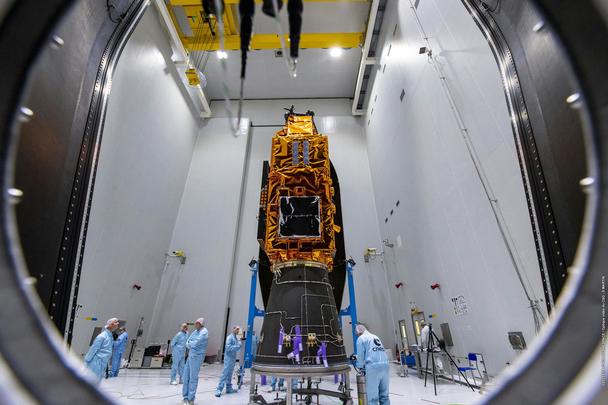The Airbus-built Biomass satellite has been successfully launched into orbit, marking a significant step forward in global climate monitoring. Developed for the European Space Agency (ESA), this flagship Earth Explorer mission will use pioneering radar technology to measure forest biomass and provide critical data for understanding the carbon cycle and its impact on climate change.
Launched aboard a Vega-C rocket from Europe’s Space Port in Kourou, French Guiana, the satellite will operate from an altitude of 666 km during its planned five-year mission. The Airbus Biomass satellite launched with the first-ever space-based P-band synthetic aperture radar (SAR) system, allowing scientists to map tropical, temperate, and boreal forests with unprecedented accuracy.
Alain Fauré, Head of Space Systems at Airbus Defence and Space, highlighted the mission’s importance:
“Biomass will give scientists and climatologists unprecedented data on the state of the world’s forests, further enhancing the understanding of the climate cycle. The spacecraft is now safely in orbit and ready to deliver its precious data.”
Designed to penetrate dense forest canopies, the satellite’s P-band radar will reveal subsurface terrain, contributing to enhanced digital elevation models and broader understanding of forest topography. It will also aid in the study of paleo aquifers in deserts, subsurface geology, and polar ice sheet dynamics.
A key feature of the spacecraft is its 12-metre deployable antenna, which will capture reflected radar signals to detect forest loss and regrowth—crucial for monitoring the effects of deforestation. The satellite’s data will support international climate initiatives such as REDD+, a UN-led program aimed at reducing emissions from deforestation and forest degradation.
Airbus led the development, integration, and testing of the satellite across its facilities in Stevenage (UK), Friedrichshafen (Germany), and Toulouse (France), before transporting it to the launch site in February 2025. The mission’s ground calibration transponder is stationed in New Norcia, Australia.
With over 50 companies from 20 countries involved in its development, the Biomass mission represents a major collaborative achievement in European space innovation.
As the Airbus Biomass satellite launched into orbit, the ESA and Airbus teams are now transitioning to in-orbit commissioning, preparing the system to deliver the vital environmental data that will drive international efforts to understand and combat climate change.












